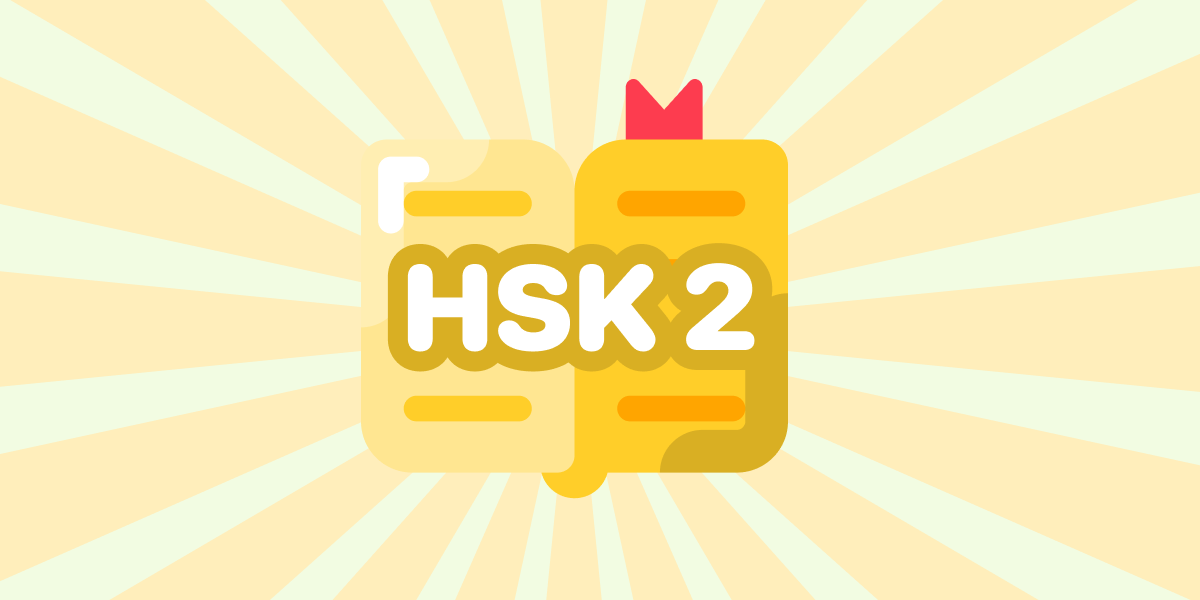HSK 2 words with confusing tones — Practice with Audio and Example Sentences
One particularly tricky thing about HSK 2 (and Chinese in general): there are many words with the same syllable but different tones that could trip you up.
For example, can you tell the difference in pronounciation between the 白 in 白色 and the 百 in 百万? Both are written as “bei” in pinyin, but they have different tones (2nd vs 3rd tones) and completely different meanings. (And to make things even more confusing, the chinese charactes also look almost the same…)
If you don’t speak a tone-based language, you’ll want to pay special attention to these words, and practice their tones.
I’ve combed through the entire list of HSK 2 vocabulary to pick out 17 groups of similar-sounding words. For each group, I’ve included an example sentence so you can learn to hear the difference in tones in context.
Let’s dive in!
1. Bai: 白 vs 百
白 bái
百 bǎi
Example: 一百个白色的鸡蛋。
A hundred white eggs.
2. Chuan: 穿 vs 船
穿 chuān
船 chuán
Example: 船长没穿衣。
The captain of the boat isn’t wearing a shirt.
3. Gao: 高 vs 告
高 gāo
告诉 gào sù
Example: 不要告诉我你不高。
Don’t tell me you aren’t tall.
4. Jie: 姐 vs 介
姐姐 jiě jie
介绍 jiè shào
Example: 我姐姐把朋友介绍给我。
My older sister introduced a friend to me.
5. Ke: 可 vs 课
可以 kě yǐ
课 kè
Example: 我可以不上课吗?
Can I not go to class?
6. Lu: 路 vs 旅
路 lù
旅游 lǚ yóu
Example: 路上没有旅游景点。
There are no tourist attractions along the way.
7. Mei: 每 vs 妹
每 měi
妹妹 mèi mei
Example: 我的妹妹每天都早起。
My younger sister wakes up early everyday.
8. Qi: 妻 vs 起
妻子 qī zi
起床 qǐ chuáng
Example: 妻子不想起床。
Wife doesn’t want to get up from bed.
9. Shi: 时 vs 事
时间 shí jiān
事情 shì qing
Example: 这时间不会有事情发生。
Nothing will happen at this time.
10. Shi: 踢 vs 事
踢足球 tī zú qiú
题 tí
Example: 想踢足球?没问题。
Want to play soccer? No problem.
11. Wan: 玩 vs 完 vs 晚
玩 wán
完 wán
晚上 wǎn shang
Example: 他晚上做完功课后就玩游戏。
He plays games after he finishes his homework at night.
12. Xi: 西 vs 希 vs 洗
西瓜 xī guā
希望 xī wàng
洗 xǐ
Example: 我希望你吃完西瓜后就马上洗碗。
I hope you do the dishes immediately after eating the watermelon.
13. Xiao: 小 vs 笑
小时 xiǎo shí
笑 xiào
Example: 一小时不能笑,你做得到吗?
Are you able to not laugh for one hour?
14. Yan: 颜 vs 眼
颜色 yán sè
眼睛 yǎn jing
Example: 他的眼睛什么颜色?
What color is his eyes?
15. Yi: 已 vs 一 vs 意
已经 yǐ jing
一起 yī qǐ
意思 yì si
Example: 我们已经一起吃过意大利面了。
We have already eaten pasta together.
16. You: 游 vs 右
游泳 yóu yǒng
右边 yòu bian
Example: 他游在右边。
He swims on the right side.
17. Zhang: 张 vs 右
张 zhāng
丈夫 zhàng fu
Example: 我的丈夫有一张诚实的脸。
My husband has an honest face.
 Kai Loh
Kai Loh
